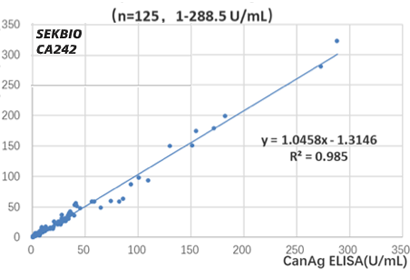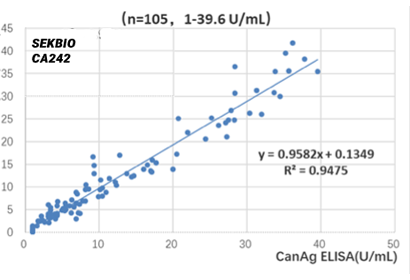CA242 Tumor Marker
CA242, or Cancer Antigen 242, is a notable glycoprotein biomarker within the realm of oncology and the biomedical industry. It is classified as a mucin, a type of glycoprotein characterized by extensive glycosylation and an often elongated structure. CA242 is composed of a unique amino acid sequence, primarily consisting of tandem repeats rich in proline, threonine, and serine residues. These repeats contribute to its mucinous and glycosylated nature, facilitating its distinctive role in various types of cancer.
The amino acid sequence of CA242, which varies slightly between individuals, comprises a central core protein with extensive glycosylation sites. The glycosylation of CA242 involves the addition of carbohydrate molecules, particularly O-linked glycans, enhancing its stability and modulating its functions. The specific amino acid sequence and glycosylation pattern are critical factors in the structural integrity and functionality of CA242, making it an important target for detection and analysis in cancer diagnostics.
The detection and accurate quantification of CA242 in biological samples are crucial for diagnosing and monitoring the progression of gastrointestinal cancers, where CA242 is often overexpressed. Understanding the intricacies of CA242's amino acid sequence and structure is fundamental in advancing the design and optimization of detection methods, ultimately contributing to enhanced cancer diagnostics and treatment strategies within the biomedical industry.
CA242 carbohydrate antigen is a kind of saliva acidification that can be colon cancer cell lines by a series of monoclonal antibody hybridoma technology is one of CA242 tumor marker recognition.
Many organs of malignant tumor mucin types of a glycoprotein found, called Cang, which cannot react with LewisA antigens and cannot react with saliva acidification galactose glucoside.
CA242 tumor marker is almost always expressed together with CA50, but different monoclonal antibodies recognize the two. Clinically, the CA242 tumor marker has been used in the diagnosis of gastrointestinal malignancies, especially pancreatic and colorectal cancers.
Compared with CA19-9 tumour marker and CA50, the new generation CA242 tumor marker has higher sensitivity and specificity in pancreatic, gallbladder, and gastrointestinal cancers.
CA242 related Products
| Antibody Pair | Application |
| Mouse anti-human CA242 mAb | For immunodiagnostic: ELISA, LFA, CLIA |
| Humanized anti-human CA242 mAb |
Method Comparison based on fluorescent test
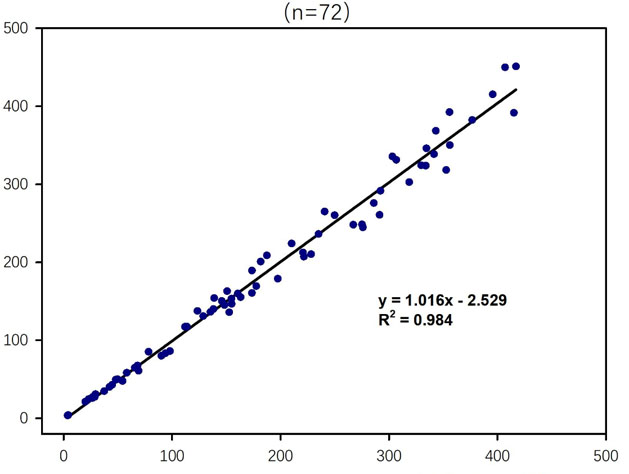
Master sheets of Fluorescent Tests available from SEKBIO
Sensitivity Data
Conc. U/mL | RLU | S/N |
0 | 1500 | 1.0 |
2 | 22213 | 14.8 |
8 | 84005 | 56.0 |
14 | 142356 | 94.9 |
50 | 489652 | 326.4 |
100 | 1005422 | 670.3 |
200 | 1706585 | 1137.7 |
500 | 3245122 | 2163.4 |
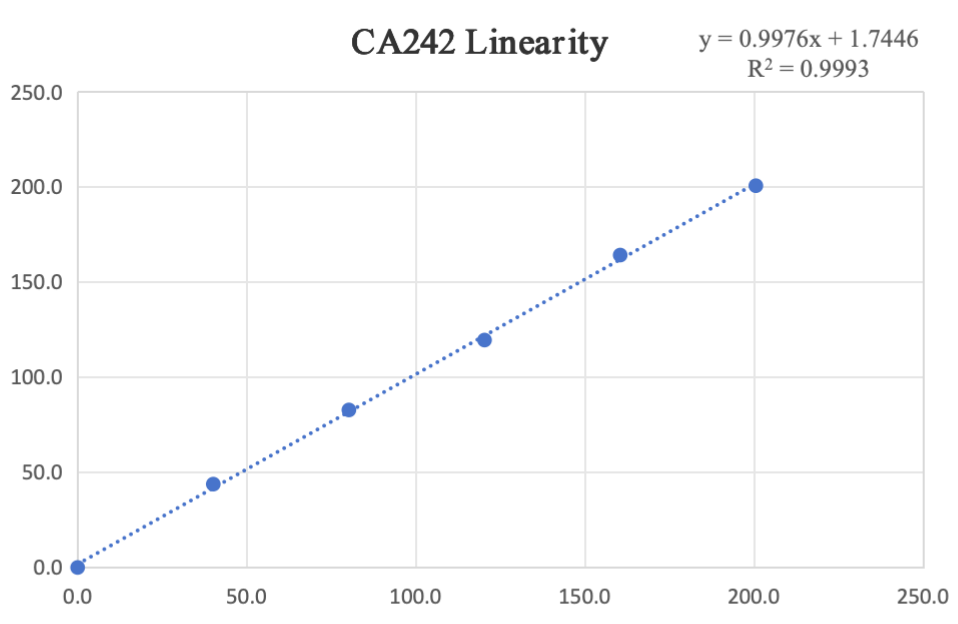
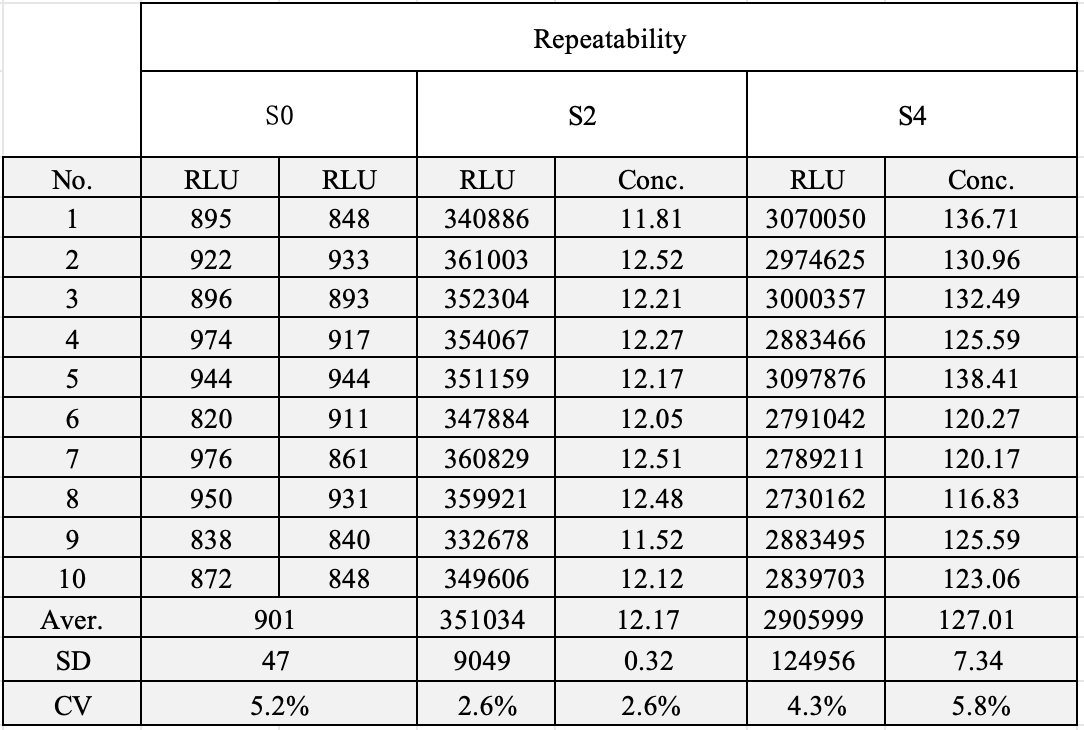
CA242 Tumor Marker Intro
Cancer antigen 242, a sialylated glycosphingolipid antigen, is a pancreatic and colon cancer marker. The increase is seen in 68% ~ 79% of pancreatic cancer, 55% ~ 85% of colon cancer, 44% of gastric cancer, and 5% ~ 33% of non-malignant tumors. Also, the positive rates of ovarian, uterine, and lung cancer were higher than cancer antigen 50.
CA242 Blood Test
Cancer antigen 242 is a marker for the digestive system, especially colon, rectal and pancreatic cancer. It is superior to CA19-9 in diagnosing pancreatic cancer, with a sensitivity of 66% to 100%. It is also helpful for diagnosing liver cancer, gastric cancer, and esophageal cancer. However, ca242 blood test is not suitable for diagnosing squamous cell carcinoma.


